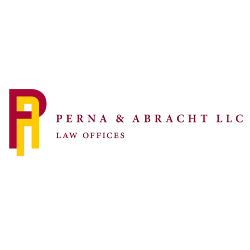How Domestic Violence Can Affect Divorce Cases
Domestic violence can be a factor in a divorce when the courts make determinations about matters such as:
- Property division
- Child custody
- Spousal support
- Alimony
- Other issues that may be unique to your circumstances
Regardless of whether you are the one being abused or you are being accused of domestic violence, it is important to document everything to prove your side of the story.
How to Prove Domestic Violence
Criminal Convictions and PFA Orders
Whether it is a criminal or civil matter, courts make decisions based on facts. If domestic violence is an issue in your divorce, you will have to provide adequate evidence to show that it took place. The most straightforward way to do this is to show evidence of a criminal conviction for domestic abuse. If your spouse was convicted of a domestic-related offense, the family court will typically consider it sufficient evidence that abuse occurred. If you or your children have been victims of domestic violence, filing for a protection from abuse order can help protect your safety and provide evidence as well.
Witness Testimony
It is important to report incidences of abuse to law enforcement every time they happen, even if they do not result in criminal charges or a conviction. Law enforcement officers can testify as witnesses in domestic violence and divorce cases, as can friends, family members, teachers, doctors, social workers, or anyone who heard or saw the abuse. Although it may be daunting, you can also testify. In addition to helping you settle other matters involved in your divorce, your attorney can help you prepare before you testify and act as your staunch advocate in court.
Proof of Injuries
If you went to the emergency room due to injuries caused by your abuser, medical records related to incidences of domestic violence can provide compelling evidence. Photos of your injuries can also be helpful in proving domestic violence in a divorce case.
Other Proof of Abuse
Another way to help prove domestic violence is to document everything. Keep a list of the dates, times, and details of each incident, what your spouse did and said, and any witnesses who may have observed the behavior. This can help prove a pattern of abuse and have a significant impact on issues like child custody. In addition, save any emails, text messages, voicemails, or social media posts/messages from your spouse. Having an experienced divorce attorney by your side can help you get through a contentious divorce, protect your interests, and hold your abuser accountable.
If you need assistance with divorce, issues surrounding domestic violence, child custody, or other family law matters, contact a Pennsylvania divorce lawyer today.
If you or someone you know needs help, contact the National Domestic Violence Hotline at 1−800−799−7233 or TTY 1−800−787−3224.
This blog was originally posted on https://www.pa4law.com/proving-domestic-violence-in-a-divorce

























